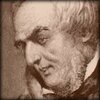thistle93
Puritan Board Freshman
Hi! I am wondering if anyone can tell me any books or articles on-line where John Darby explains in his own words how and why he came to formalize dispensationalism and where the idea come from (his understanding of Scripture or some other influence) ? Was he covenantal before this point? Was there any other hermeneutic besides covenantal before dispensationalism? I know some authors who are covenantal but still use word "dispensation" but only when referring to "old dispensation" and "new dispensation, which I believe would merely be referring to "old covenant" and "new covenant". This would be much different in meaning then a dispensationlists using the word "dispensation, correct?
Thanks!
For His Glory-
Matthew Wilson
Thanks!
For His Glory-
Matthew Wilson

